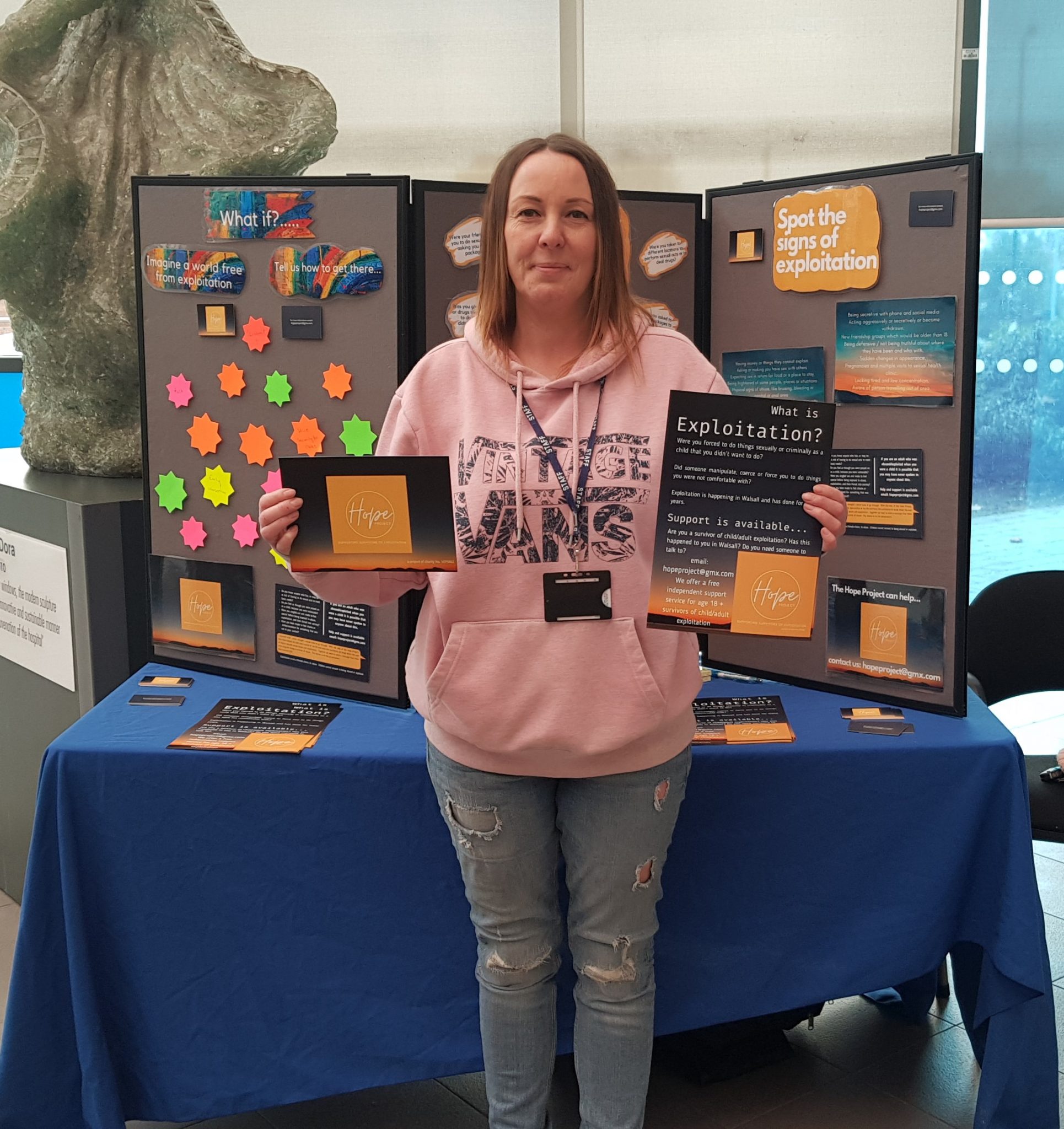Staff across Walsall Manor Hospital and its community services will be playing their part in this year’s Adult Safeguarding Week which takes the theme “Creating Safer Cultures.”
This focus, which starts today and runs until Sunday 21 November, creates an opportunity for organisations to come together to raise awareness of adult safeguarding issues so that we can all be better together.
Walsall Healthcare NHS Trust is supporting Street Teams which specialises in working with children and young people abused through sexual exploitation. This week, Street Teams is highlighting the experiences of adults who were a victim of exploitation when they were younger and has launched the Hope Project.
Gail Beeley is a Transition/Historic Support Worker who wants to find and engage adults who were a victim of exploitation when they were younger or who still are being exploited. She has a stand in Walsall Manor Hospital today, outside the Fundraising Hub in the main atrium, to highlight this work.
Gail said: “We have set up an email address – hopeproject@gmx.com – for adult survivors to get in touch.
“For someone who has had the experience of being exploited as a child it can be really difficult for them to trust anyone enough to confide in them. Yet there are so many ways Street Teams can support survivors and we hope that this week will raise awareness of what is possible. We will also be sharing the stories of a couple of survivors.”
Creating Safer Cultures is all about how organisations and individuals can take steps to minimise harm occurring in the first instance, whilst simultaneously ensuring correct policies and procedures are in place so that safeguarding concerns that are raised are recognised and responded to effectively.
What do Safer Cultures Look Like?
Listening – organisations should listen to members and create an environment where people’s concerns are listened to and addressed appropriately. Individuals should feel confident about how to respond to, report and refer any safeguarding concerns either within their organisation or community.
Leading– organisations should ensure they have the correct policies and procedures in place to minimise the risk of harm and to respond effectively should concerns is raised. This could include having a detailed safeguarding policy and ensuring that staff and volunteers receive regular safeguarding training.
Learning – it is important that organisations, and individuals within them, take the time to learn from safeguarding incidents and reflect on what actions could be altered in the future to facilitate best practice and minimise the risk of harm.

